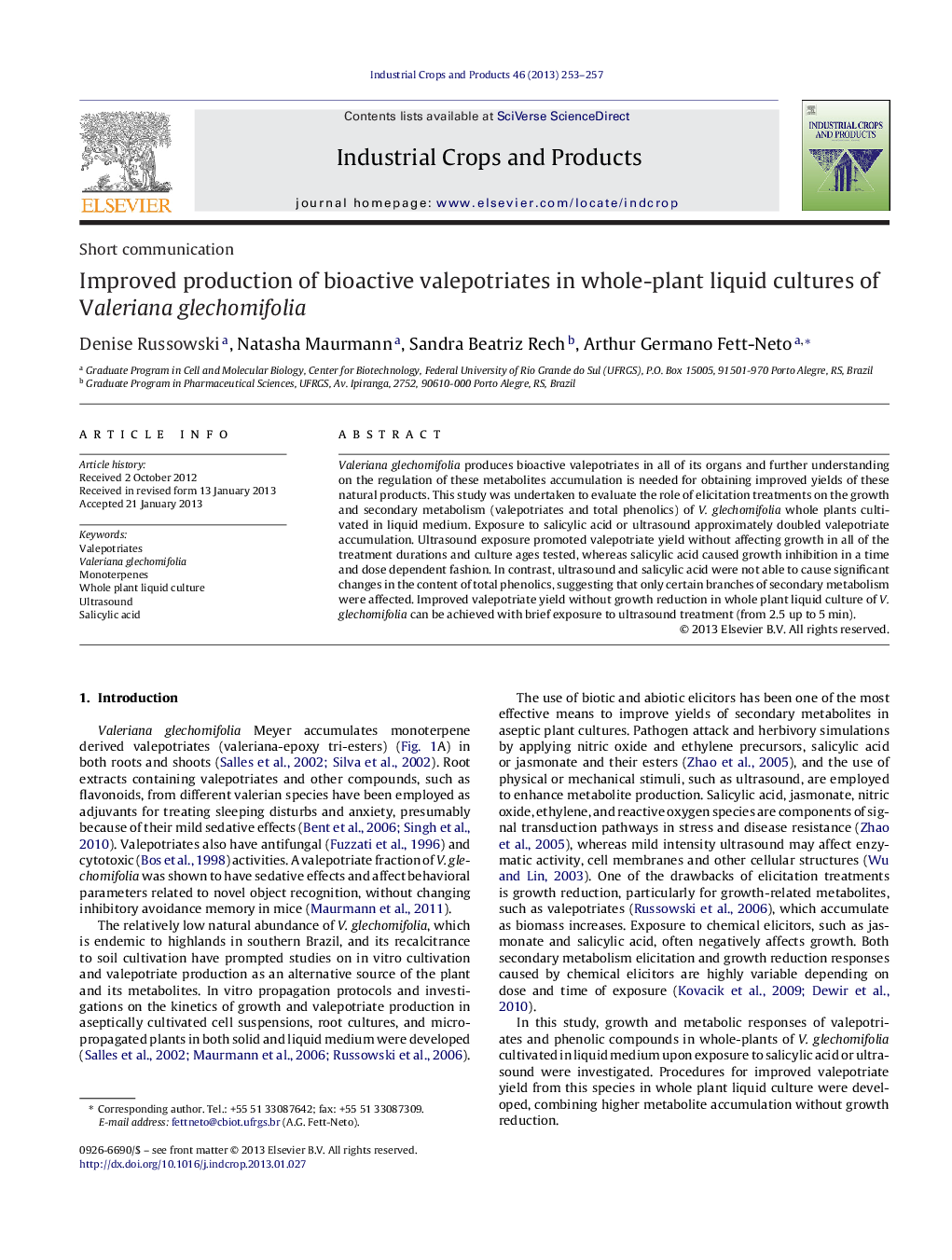| Article ID | Journal | Published Year | Pages | File Type |
|---|---|---|---|---|
| 4513853 | Industrial Crops and Products | 2013 | 5 Pages |
Valeriana glechomifolia produces bioactive valepotriates in all of its organs and further understanding on the regulation of these metabolites accumulation is needed for obtaining improved yields of these natural products. This study was undertaken to evaluate the role of elicitation treatments on the growth and secondary metabolism (valepotriates and total phenolics) of V. glechomifolia whole plants cultivated in liquid medium. Exposure to salicylic acid or ultrasound approximately doubled valepotriate accumulation. Ultrasound exposure promoted valepotriate yield without affecting growth in all of the treatment durations and culture ages tested, whereas salicylic acid caused growth inhibition in a time and dose dependent fashion. In contrast, ultrasound and salicylic acid were not able to cause significant changes in the content of total phenolics, suggesting that only certain branches of secondary metabolism were affected. Improved valepotriate yield without growth reduction in whole plant liquid culture of V. glechomifolia can be achieved with brief exposure to ultrasound treatment (from 2.5 up to 5 min).
► Valeriana glechomifolia whole plant cultures are a source of bioactive valepotriates. ► Ultrasound and salicylic acid promoted valepotriate accumulation, but not phenolics. ► Ultrasound elicitation showed no time dependence and caused no inhibition of growth.
